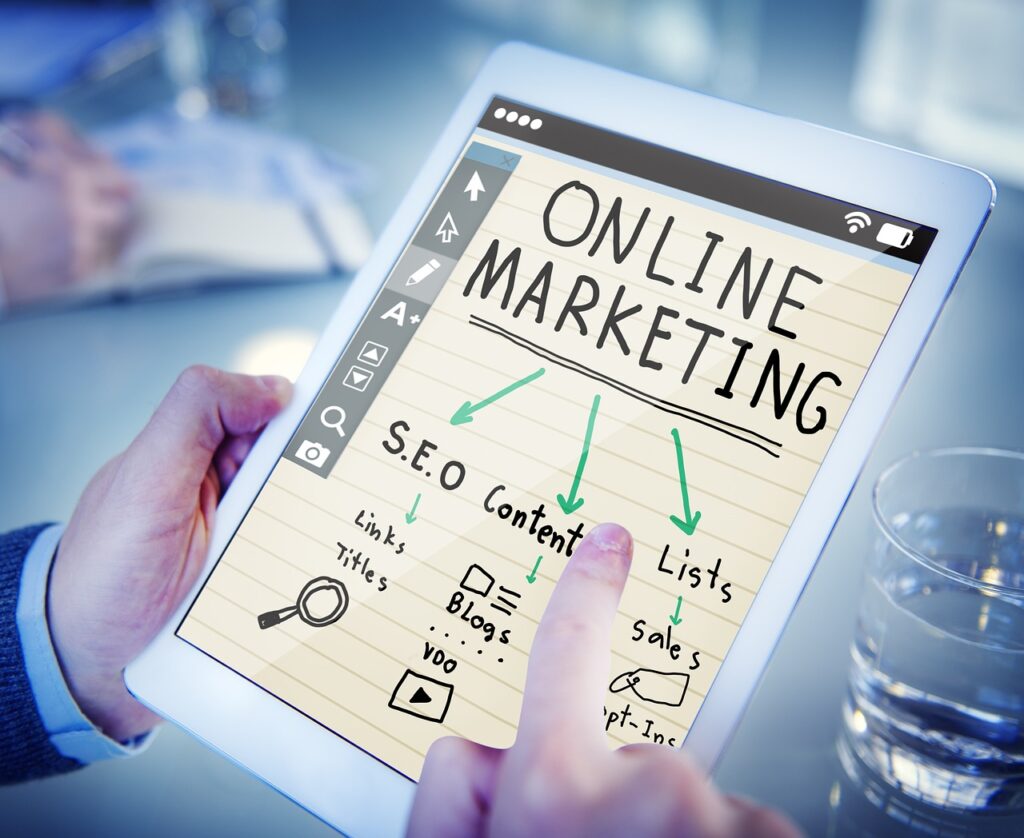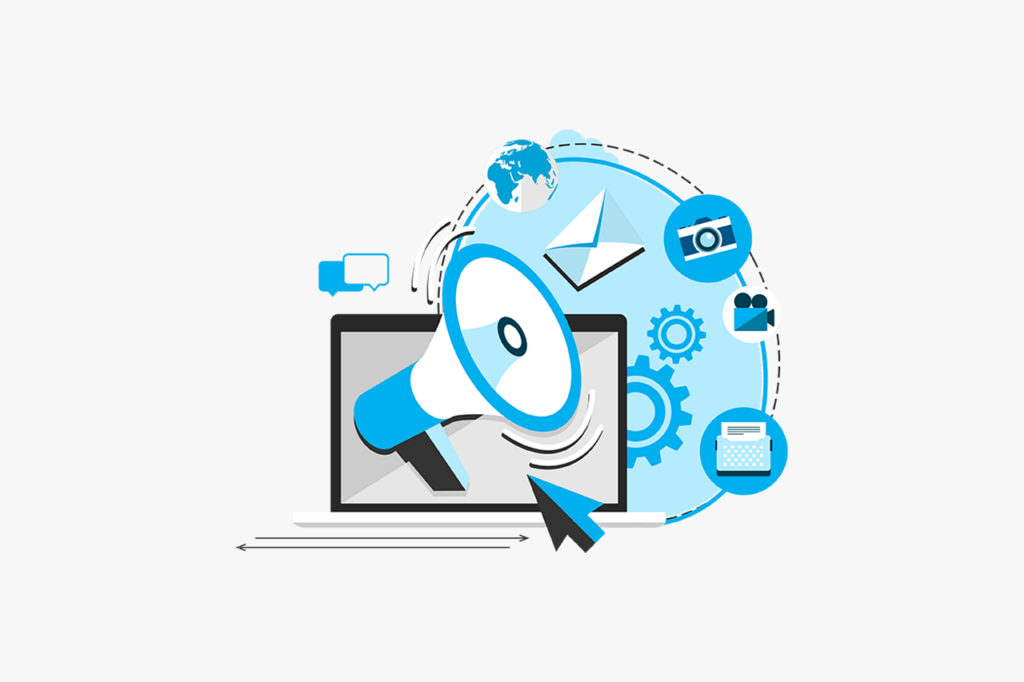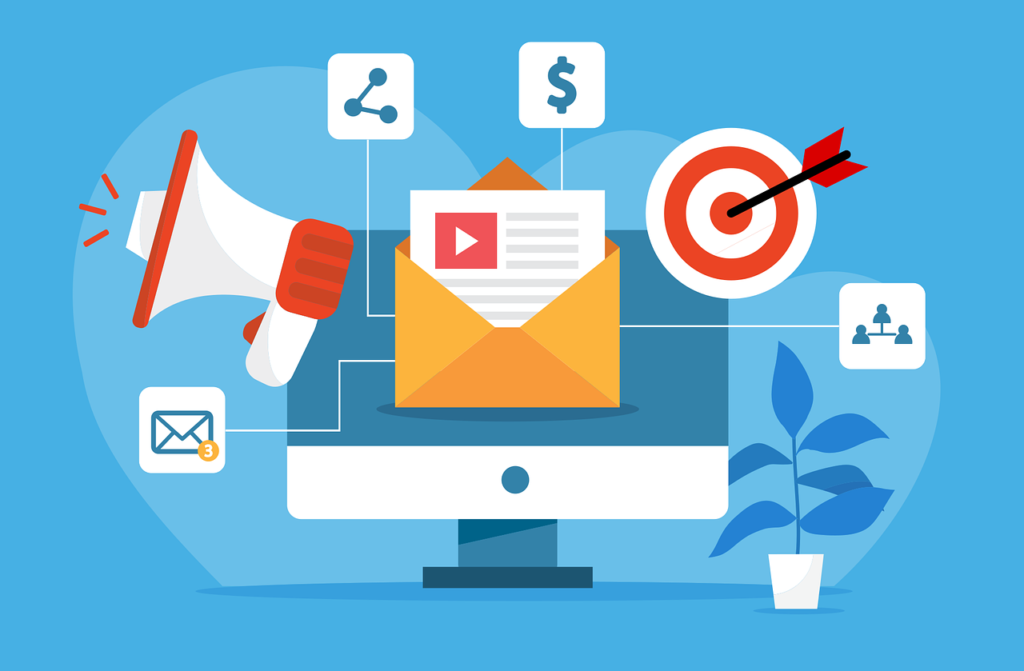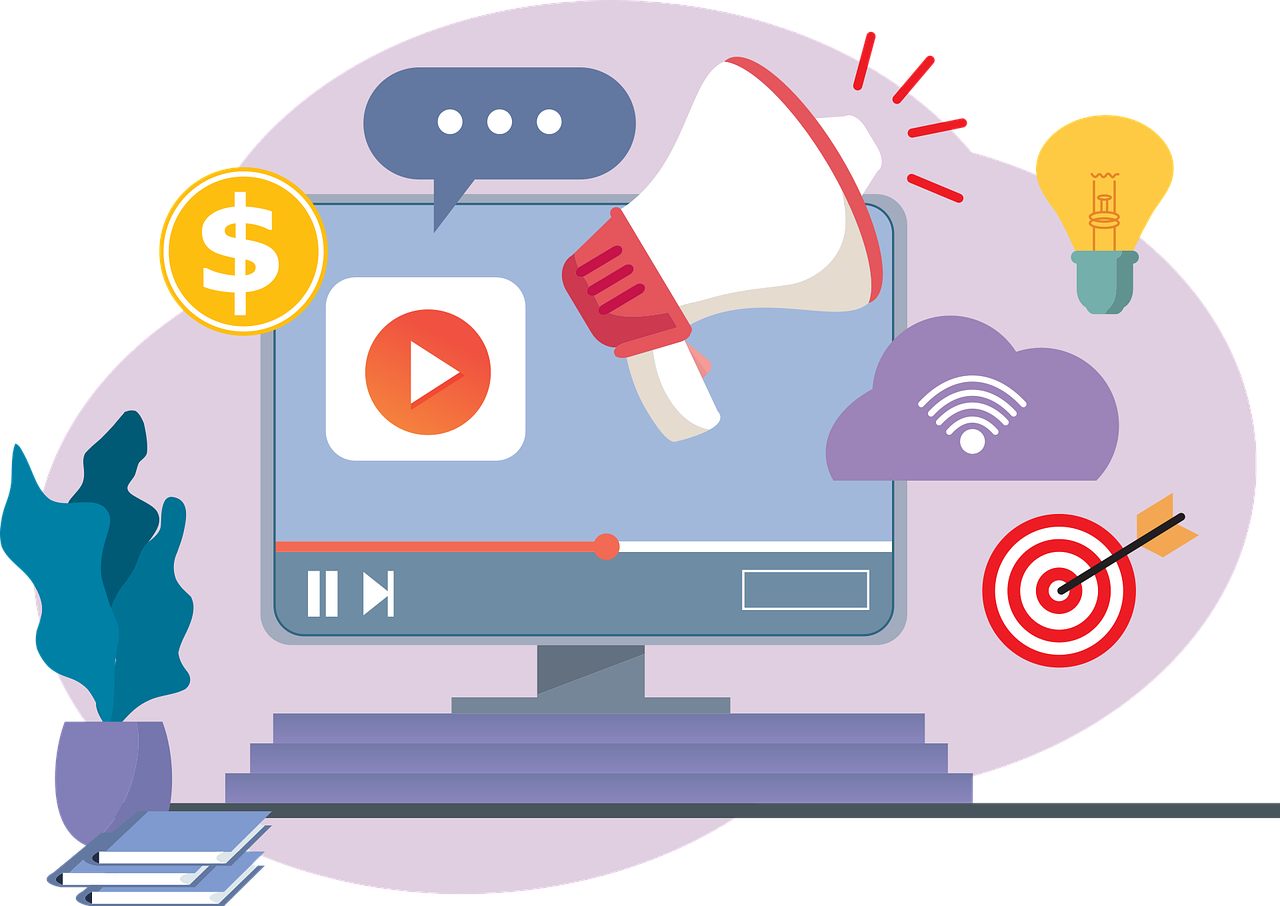The goal of online marketing is to reach and engage with potential customers, increase brand awareness, and ultimately drive sales and revenue. Online marketing strategies can be tailored to a specific target audience and can be tracked and measured in real-time, allowing marketers to optimize their campaigns for maximum effectiveness.
What Is Online Marketing Meaning?
Online marketing, also known as digital marketing, is the process of promoting products, services, or brands through various online channels. This can include social media platforms, search engines, email marketing, display advertising, and mobile advertising.
Some common examples of online marketing include search engine optimization (SEO), pay-per-click (PPC) advertising, content marketing, social media marketing, email marketing, and affiliate marketing. Each of these tactics has its own unique strengths and can be used in conjunction with other strategies to create a comprehensive online marketing campaign.
How Online Marketing Works?

Online marketing works by using various digital channels and tactics to reach and engage with a target audience. Here are the general steps involved in how online marketing works:
- Define target audience: Businesses first need to identify their target audience, which includes demographics, interests, and behaviors.
- Set goals: Businesses then need to set goals for their online marketing campaign, such as increasing website traffic, generating leads, or driving sales.
- Choose digital channels: Businesses need to determine which digital channels and tactics to use, based on their target audience and goals. This could include search engine optimization (SEO), pay-per-click (PPC) advertising, social media marketing, content marketing, email marketing, and others.
- Create content and campaigns: Businesses need to create engaging content and campaigns that resonate with their target audience and align with their goals.
- Optimize campaigns: Once the campaigns are launched, businesses need to monitor and analyze the performance of their campaigns, and make adjustments as needed to improve results.
- Measure results: Online marketing campaigns can be measured in real-time using analytics tools, allowing businesses to track their progress and ROI.
By following these steps, businesses can use online marketing to reach and engage with their target audience, build brand awareness, generate leads, and drive sales and revenue.
Types Of Online Marketing
There are many different types of online marketing, each with its own unique set of strategies and tactics. Here are some of the most common types of online marketing:
- Search engine optimization (SEO): The process of optimizing a website to improve its visibility and ranking in search engine results pages.
- Pay-per-click (PPC) advertising: A model of online advertising in which advertisers pay each time a user clicks on one of their ads.
- Social media marketing: The use of social media platforms to promote a product or service, build brand awareness, and engage with customers.
- Content marketing: The creation and distribution of valuable and relevant content to attract and engage a target audience.
- Email marketing: The use of email to communicate with customers and prospects, promote products or services, and build brand loyalty.
- Affiliate marketing: A performance-based marketing model in which an affiliate earns a commission for promoting and selling another company’s products or services.
- Influencer marketing: The use of influencers to promote a product or service to their followers on social media.
- Mobile marketing: The use of mobile devices to reach and engage with customers, through mobile apps, text messaging, and mobile websites.
These are just a few of the many types of online marketing that businesses can use to reach and engage with their target audience. The most effective marketing strategy will depend on the business’s goals, target audience, and available resources.
Advantages & Benefits Of Online Marketing

There are several advantages of online marketing, including:
- Greater reach: Online marketing allows businesses to reach a wider audience, both domestically and internationally, than traditional marketing methods.
- Cost-effective: Online marketing is generally less expensive than traditional marketing methods, such as TV or print advertising, and can be tailored to a specific budget.
- Measurable results: Online marketing campaigns can be tracked and analyzed in real-time, allowing businesses to measure the success of their campaigns and make adjustments as needed.
- Targeted audience: Online marketing allows businesses to target their audience more precisely, based on demographics, interests, and behaviors.
- Personalization: Online marketing allows businesses to personalize their messaging and content to individual customers, which can help build brand loyalty.
- 24/7 availability: Online marketing channels, such as social media and email, are available 24/7, allowing businesses to connect with customers at any time.
- Increased engagement: Online marketing channels, such as social media and content marketing, allow for two-way communication and increased engagement with customers.
These advantages make online marketing a powerful tool for businesses looking to build brand awareness, reach new customers, and drive sales and revenue.
Best Online Marketing Tools
There are many online marketing tools available to businesses of all sizes. Here are some popular examples:
- Google Analytics: A free web analytics tool that provides data on website traffic, user behavior, and other important metrics.
- Hootsuite: A social media management platform that allows businesses to schedule and publish social media posts across multiple channels.
- Mailchimp: An email marketing platform that allows businesses to create and send email campaigns, track open rates and click-through rates, and more.
- SEMrush: A search engine optimization (SEO) tool that allows businesses to track their website’s ranking in search engine results pages and analyze their competitors’ SEO strategies.
- Canva: A graphic design platform that allows businesses to create professional-looking graphics for social media, email marketing, and other online marketing channels.
- HubSpot: A marketing automation platform that helps businesses manage their leads, track their marketing campaigns, and measure their ROI.
- Buffer: A social media management platform that allows businesses to schedule social media posts, track engagement metrics, and more.
- Moz: A suite of SEO tools that includes a keyword research tool, a site audit tool, and more.
These are just a few examples of the many online marketing tools available to businesses. The best tools for a particular business will depend on its specific needs, budget, and goals.
Features Of Online Marketing

Some of the key features of online marketing include:
- Interactivity: Online marketing channels, such as social media and email, allow for two-way communication and interaction between businesses and their customers.
- Targeting: Online marketing allows businesses to target their audience more precisely, based on demographics, interests, and behaviors.
- Measurability: Online marketing campaigns can be tracked and analyzed in real-time, allowing businesses to measure the success of their campaigns and make adjustments as needed.
- Personalization: Online marketing allows businesses to personalize their messaging and content to individual customers, which can help build brand loyalty.
- Cost-effectiveness: Online marketing is generally less expensive than traditional marketing methods, such as TV or print advertising, and can be tailored to a specific budget.
- Global reach: Online marketing allows businesses to reach a wider audience, both domestically and internationally, than traditional marketing methods.
- Speed: Online marketing campaigns can be executed quickly and easily, allowing businesses to respond quickly to changing market conditions and customer needs.
These features make online marketing a powerful tool for businesses looking to build brand awareness, reach new customers, and drive sales and revenue.
Examples Of Online Marketing

There are many examples of online marketing that businesses can use to reach and engage with their target audience. Here are some common examples:
- Search engine optimization (SEO): Optimizing a website to rank higher in search engine results pages (SERPs), so that potential customers can find the business when searching for related keywords.
- Pay-per-click (PPC) advertising: Running targeted ads on search engines or social media platforms, and paying only when a user clicks on the ad.
- Social media marketing: Promoting a product or service through social media channels, such as Facebook, Twitter, Instagram, or LinkedIn, to build brand awareness and engage with customers.
- Content marketing: Creating and publishing valuable and relevant content, such as blog posts, articles, videos, or infographics, to attract and engage a target audience.
- Email marketing: Using email to communicate with customers and prospects, promote products or services, and build brand loyalty.
- Affiliate marketing: Partnering with other businesses or individuals to promote products or services, and earning a commission on sales generated through those promotions.
- Influencer marketing: Partnering with social media influencers who have a large following to promote a product or service to their audience.
- Mobile marketing: Reaching and engaging with customers through mobile devices, such as mobile apps, text messaging, and mobile websites.
These are just a few examples of the many types of online marketing that businesses can use to connect with their target audience and drive sales and revenue.
Read More –
- Is Digital Marketing Easy For Beginners?
- Is Digital Marketing A Good Career?
- How Do I Start Digital Marketing?
- What Is SEO And How It Works?
We hope you enjoy this blog. If you liked this blog, then do let us know by commenting, so that we can keep bringing such useful information for you. Apart from this, you also share this blog with your friends. For more valuable content like this, follow us on Facebook, Instagram, Twitter, and Telegram.







